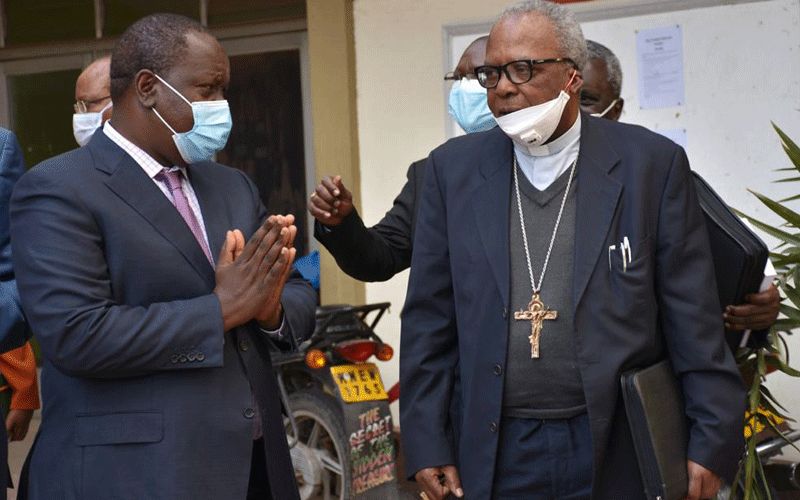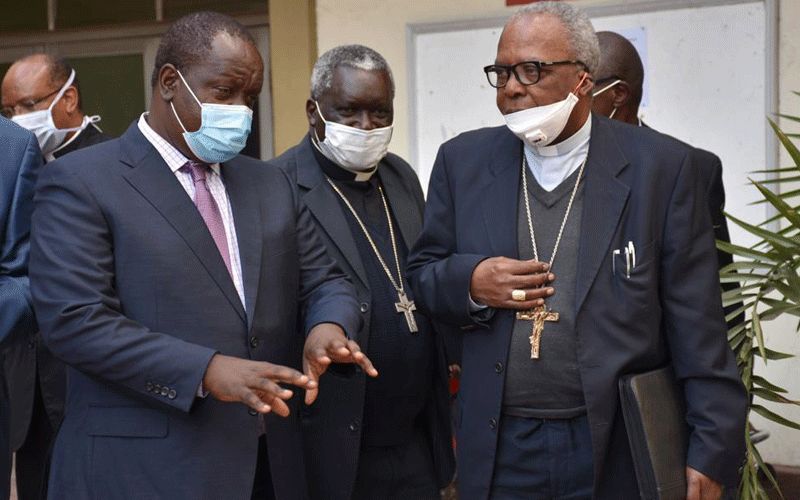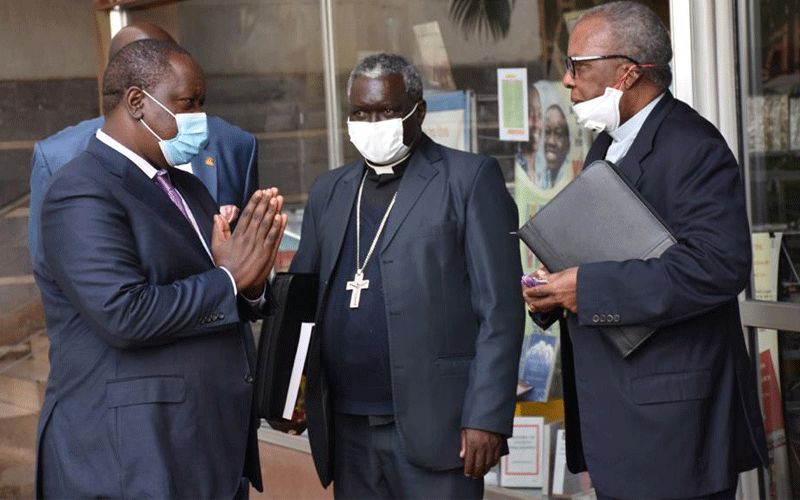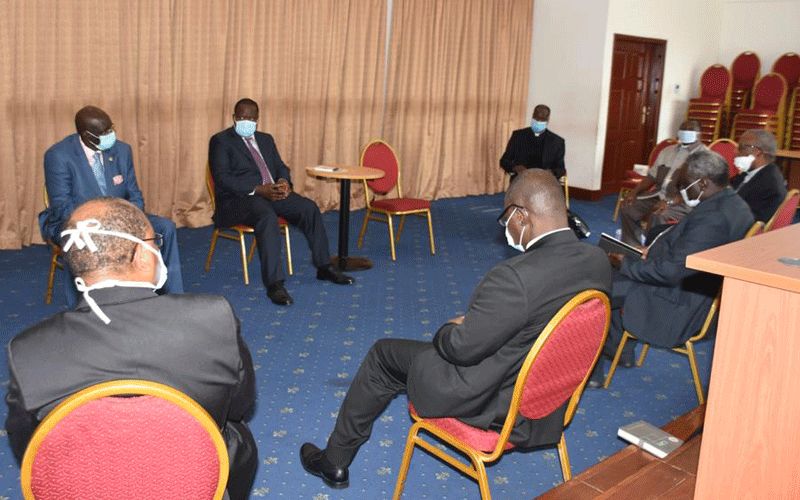“Our role is educating the masses on the dangers of COVID-19. We have to make people understand that the virus is a reality and that it is at a critical stage as cases of infections increase by the day,” Archbishop who is also the Apostolic Administrator of Kenya’s Homabay Diocese further said and continued, “It is an actual doomsday as long as we don’t have any medication or vaccine yet. These are things that our people need to understand.”
Kenya reported a record 123 new COVID-19 cases on Wednesday, May 27, bringing the total number of infections in the East African country to 1,471 with 55 related deaths and 408 recoveries.
To contain the spread of the virus, the Kenyan government, in March, suspended public worship and ordered closure of schools.
But on May 23, while allocating funds to the education docket to support tutor recruitment as well as the hiring of ICT interns to support digital learning, President Uhuru Kenyatta hinted on re-opening of schools, a decision that has attracted mixed reactions from various groups in the country.
“We will in the very near future be communicating, what plans and programs we have for the education sector. In that regard, we have allocated an additional budget of KES.6.5 billion (US$60 million) to the Ministry of Education,” President Kenyatta said, adding that he was aware of the anxiety that weighed on the minds of parents and their children with regard to when schools will reopen.
(Story continues below)
Kenya National Union of Teachers (KNUT) Secretary-General Wilson Sossion, however, told local media that schools should only reopen once the disease has been contained.
“Let them resume social programs first before schools. Safety of students and teachers is number one and that is still not guaranteed by hurried opening,” said the teachers’ union boss in Kenya.
Kenya Union of Post Primary Education Teachers (KUPPET), on the other hand, has proposed partial re-opening of schools by June 15 for national examination candidates.
“While these recommendations are drawn from the experiences of other countries, the Ministry of Health should have the final authority on partial re-opening of learning institutions,” said KUPPET Secretary-General, Akelo Misori.
 Referencing the contested plans to re-open schools, Archbishop Anyolo said that the government was taking precautions to ensure that the exercise is conducted in a safe manner.
Referencing the contested plans to re-open schools, Archbishop Anyolo said that the government was taking precautions to ensure that the exercise is conducted in a safe manner.
“The government approach to possible re-opening of schools and even suspension of ban on public worship is commendable. They have embraced stakeholder engagement. All concerned stakeholders have been given a proposal to study and to express views before any action is taken,” the Archbishop said, adding that all five Bishops who attended the May 26 meeting walked away with a government proposal towards re-opening of schools.
“We’ll read the proposal and react to it,” he said.
The question of forceful evictions in Nairobi also came up in the meeting, with the Bishops urging the government not to forcefully eject poor Nairobi residents from their homes.
“We all came to an understanding that this is not the right time to pull down people’s houses and to leave hundreds of people homeless; not when the same government is advocating for people to stay in their homes as a measure to contain the spread of the virus,” Bishop Anyolo said.
Agnes Aineah is a Kenyan journalist with a background in digital and newspaper reporting. She holds a Master of Arts in Digital Journalism from the Aga Khan University, Graduate School of Media and Communications and a Bachelor's Degree in Linguistics, Media and Communications from Kenya's Moi University. Agnes currently serves as a journalist for ACI Africa.
 He added referencing meetings with other faith-based leaders in Kenya, “I reiterated the Government's commitment to continue working with the church through its leaders as we continue to take measures, and make decisions, with regard to our country’s COVID-19 situation.”
He added referencing meetings with other faith-based leaders in Kenya, “I reiterated the Government's commitment to continue working with the church through its leaders as we continue to take measures, and make decisions, with regard to our country’s COVID-19 situation.”




 “We’ll be meeting in the coming days to come up with a proposal to the government on how we can go about opening churches,” Archbishop Anyolo told ACI Africa.
“We’ll be meeting in the coming days to come up with a proposal to the government on how we can go about opening churches,” Archbishop Anyolo told ACI Africa. Referencing the contested plans to re-open schools, Archbishop Anyolo said that the government was taking precautions to ensure that the exercise is conducted in a safe manner.
Referencing the contested plans to re-open schools, Archbishop Anyolo said that the government was taking precautions to ensure that the exercise is conducted in a safe manner.


